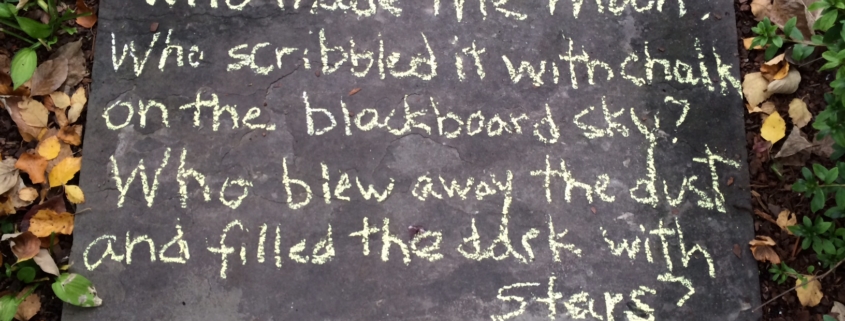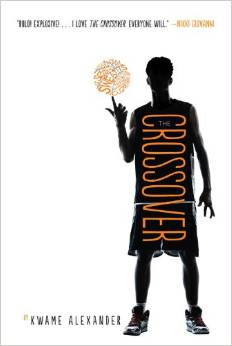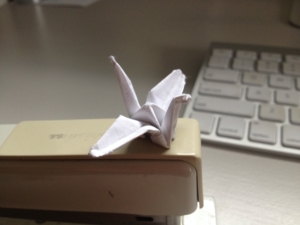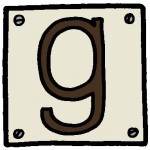Chalk Moon
Who made the moon?
Who scribbled it with chalk
on the blackboard sky?
Who blew the dust away
and filled the dark with stars?
It’s the last day of the month, so it must be time for a Chalk-a-bration! This is Betsy Hubbard’s brilliant way to combine fun with chalk and fun with poetry. She does it with her kindergarten class and invites anyone and everyone to join in the celebration. My poem today is completely inspired by her recent classroom activities which she describes on her blog Teaching Young Writers. Starting with “Tonight” a sweet poem by Amy Ludwig VanDerwater, Betsy’s students have been chalking moons and stars and writing about the moon. You can see where the idea for my poem came from. Thanks to Betsy and her class for sharing the fun and inspiration!











